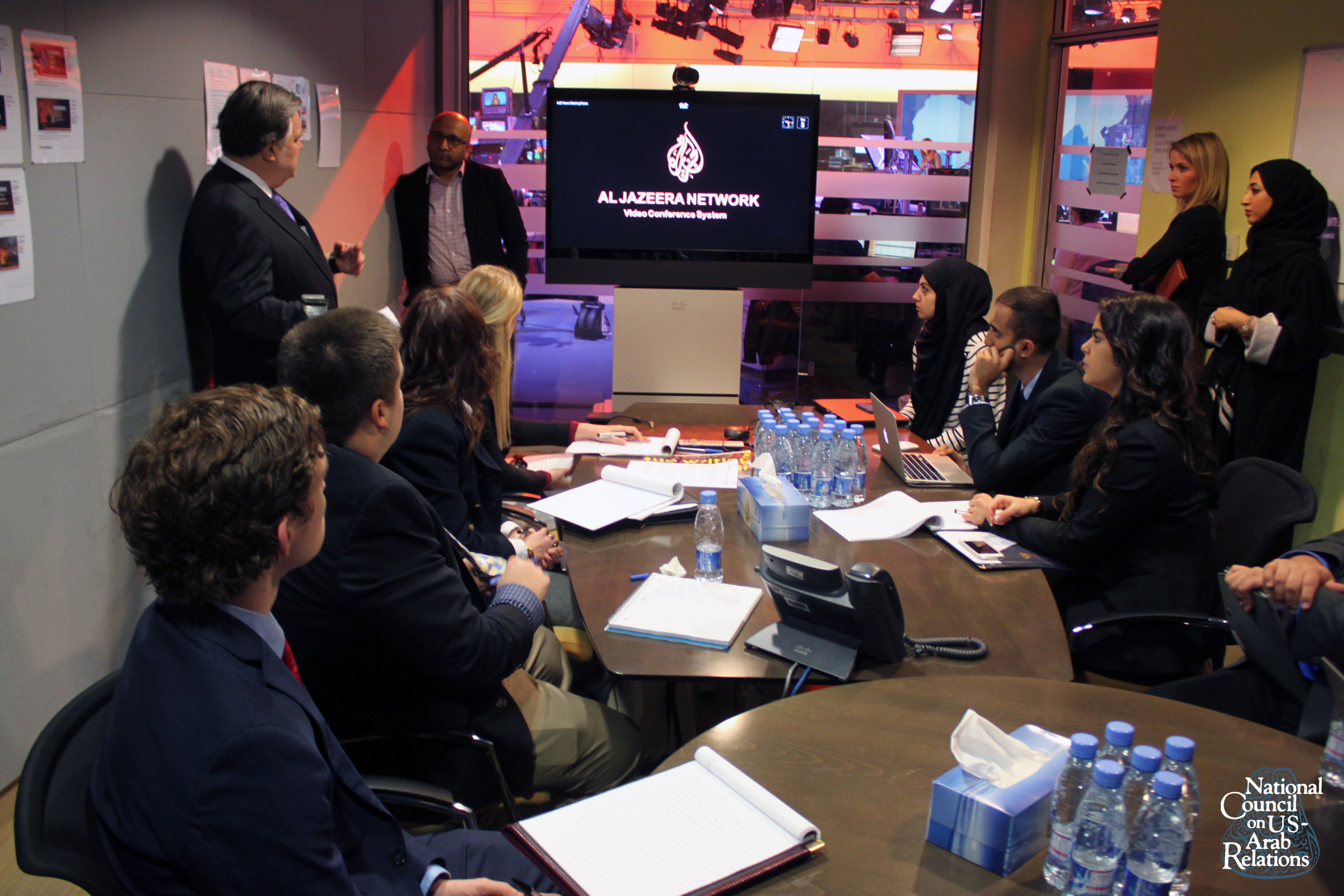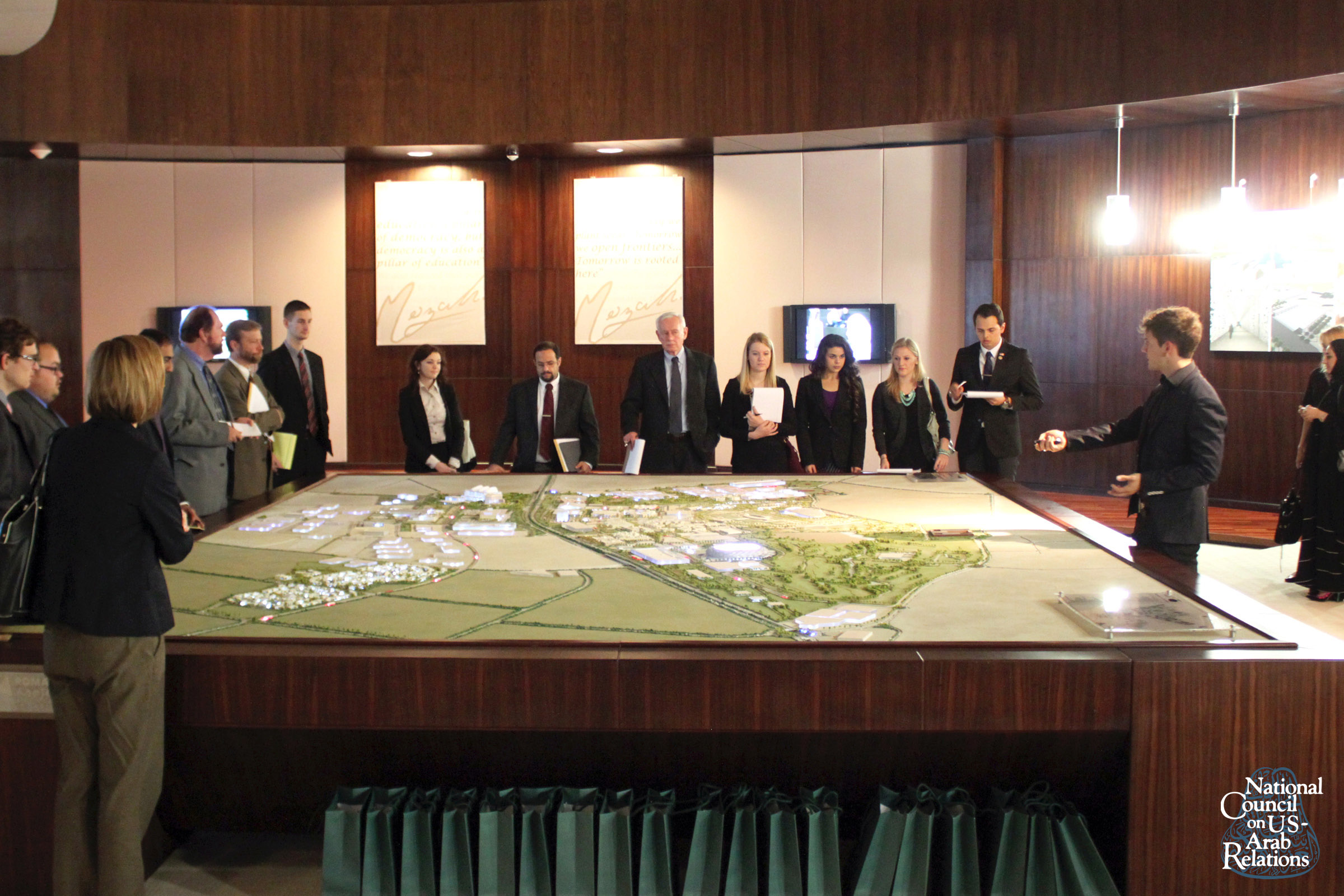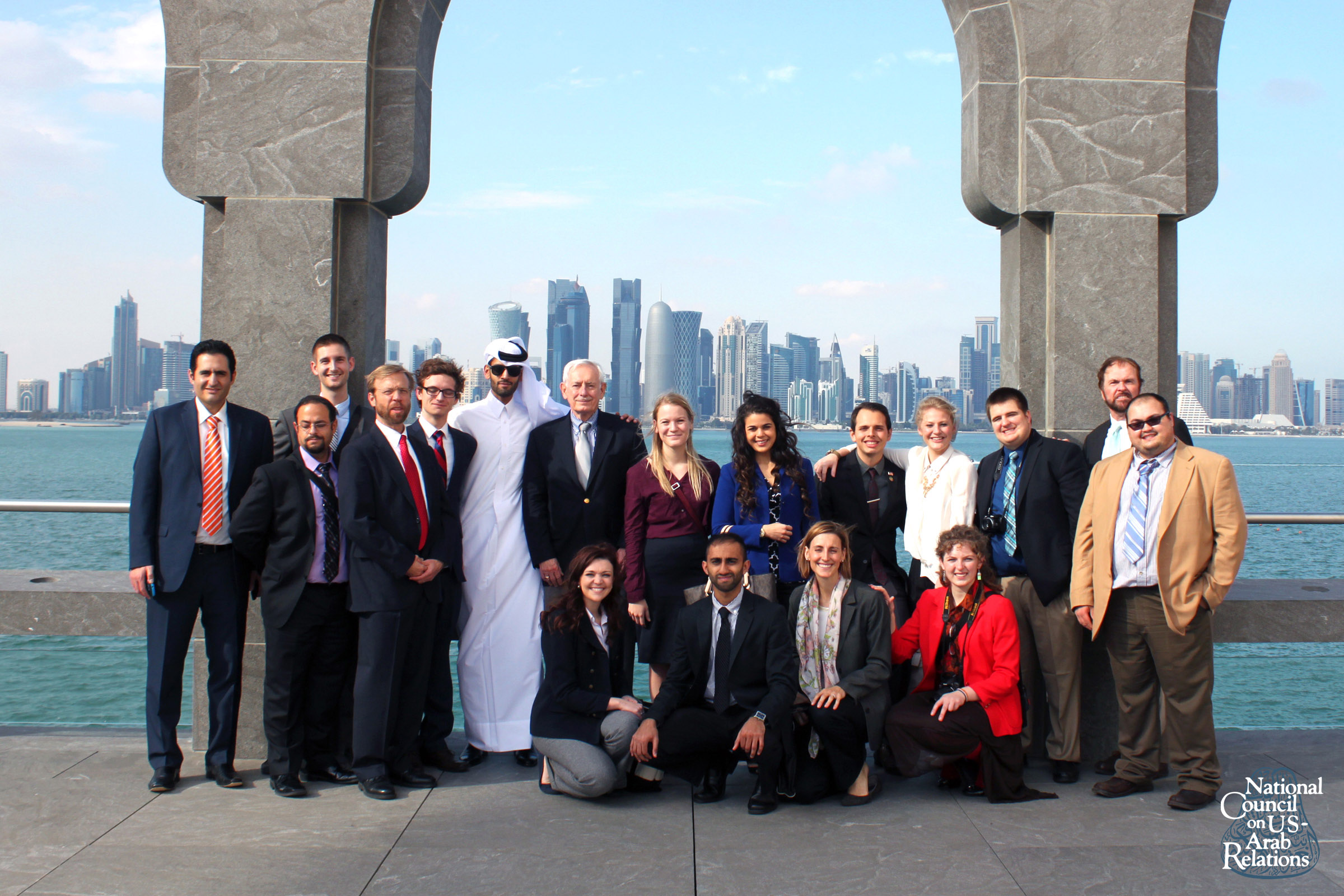NATIONAL COUNCIL SIGNS MEMORANDUM OF UNDERSTANDING WITH GULF RESEARCH CENTER
Organizations to Collaborate on Programs, Publications, and Activities Analyzing the Gulf Cooperation Council (GCC), the GCC’s Six Member-Countries, Arabia and the Gulf as a Whole, and U.S. Relations with the Region
Washington, DC, USA & Jeddah, Saudi Arabia: The Washington, DC-based National Council on U.S.-Arab Relations (National Council) recently executed a Memorandum of Understanding for future strategic cooperation on matters of mutual interest with the Jeddah, Saudi Arabia-based Gulf Research Center (GRC), which has consistently been ranked among the Top Think Tanks in the Middle East and North Africa by the University of Pennsylvania. The National Council and GRC agreed to coordinate efforts to promote understanding of the Gulf Cooperation Council (GCC) and its member countries (Bahrain, Kuwait, Oman, Qatar, Saudi Arabia, and the United Arab Emirates), regional and international issues affecting the broader Gulf and Arabian Peninsula regions, and the multifaceted and mutually beneficial U.S.-Gulf relationship. Through research projects, educational programs, events, and activities the organizations will seek to assist the reciprocal processes of knowledge acquisition between the GCC countries and the global community. Under the Memorandum of Understanding each party will maintain its independent status.

Gulf Research Center Founder and Chairman Dr. Abdulaziz Sager met with a National Council delegation in Jeddah, Saudi Arabia, on January 3, 2015. The delegation was comprised of outstanding students and faculty advisors from the Council’s Model Arab League student leadership development program, and led by Council Founding President and CEO Dr. John Duke Anthony, board member John Pratt, and staff members Laura Tucker and Kaylee Boalt.
GRC Founder and Chairman Dr. Abdulaziz Sager said that, “this collaboration will facilitate the expansion of the GRC’s work in the United States and around the world. It will assist our researchers and analysts in their understanding of how the global community responds to the Gulf. It will also enable us to increase the number of events and programs we administer jointly. Dr. John Duke Anthony and the National Council have a long history of research, publications, and education regarding the GCC, its member-countries, the Arabian Peninsula as a whole, and the Gulf and Arab world more broadly. As such, the Council will be an ideal collaborator for advancing our key objective — ‘Knowledge for All.’ We look forward to a fruitful and productive relationship.”
National Council Founding President and CEO Dr. Anthony noted that the agreement, “formalizes a process of cooperation between our two organizations that has existed informally for quite some time. Working with the GRC strengthens the Council’s multifaceted efforts to build as many new U.S.-Arab bridges and strengthen as many existing ones as possible. The GRC is recognized globally as one of the Arab world’s foremost private research and educational organizations devoted to increasing knowledge and understanding of the GCC region, the GCC itself, and the six GCC member-countries’ domestic and external issues, challenges, and opportunities. The collaboration will enhance the Council’s educational efforts regarding this internationally vital region.”
About the National Council on U.S.-Arab Relations: Founded in 1983 and based in Washington, DC, the National Council is an American non-profit, non-governmental, educational organization dedicated to improving American knowledge and understanding of the Arab world. Information about the Council’s program, projects, events, and activities can be found at ncusar.org.
About the Gulf Research Center: Founded in 2000, and based in Jeddah, Saudi Arabia, with regional offices in Geneva, Switzerland, and Cambridge, United Kingdom, the Gulf Research Center is an independent, non-governmental, non-profit organization focused on the production and dissemination of objective and scholarly research about the GCC area as well as Iran, Iraq, and Yemen. Information about the Center’s publications, workshops, seminars, and conferences is available at grc.net.
 |
 |














You must be logged in to post a comment.